Michelle Worthington's Blog, page 5
July 8, 2019
Why Reading to Our Littlest Babies Matters
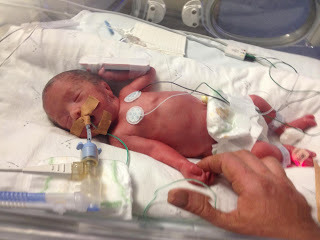
Reading to your baby, especially when you aren’t able to touch them, not only lets them know you are there, it forms a bond that helps to fight the postnatal depression and PTSD experienced by parents of premature babies and babies in intensive and special care. I know. I was in that position, three times. I read to each of the boys when I wasn’t allowed to cuddle them and it made a huge difference. That’s why I’m so blown away at being asked to the the Ambassador of the very first Life's Little Treasures Foundation Little Readers Readathon, as a Mum and an author. Best of all, Tommy gets to help, too!
Why reading matters…
Even the tiniest babies need frequent exposure to spoken language to ensure optimal early brain development.
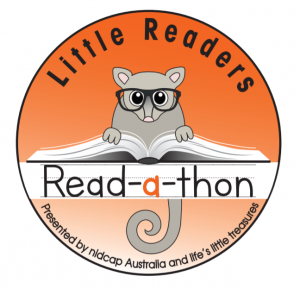 During a baby’s time in the Neonatal Unit critical brain development is occurring, including the development of the pathways in the brain that control language skills. By reading to their babies, parents are not only bonding with them and reducing some of the stress associated with being in the NICU, they are also supporting their baby’s brain development. Babies need frequent exposure to meaningful auditory experiences to ensure optimal early brain development. Research has identified a number of benefits of reading from early infancy, with a lasting effect on language, literacy and early reading skills with a boost in vocabulary at four years of age. Little Readers read-a-thon
During a baby’s time in the Neonatal Unit critical brain development is occurring, including the development of the pathways in the brain that control language skills. By reading to their babies, parents are not only bonding with them and reducing some of the stress associated with being in the NICU, they are also supporting their baby’s brain development. Babies need frequent exposure to meaningful auditory experiences to ensure optimal early brain development. Research has identified a number of benefits of reading from early infancy, with a lasting effect on language, literacy and early reading skills with a boost in vocabulary at four years of age. Little Readers read-a-thon 
Even the tiniest babies need frequent exposure to spoken language to ensure optimal early brain development. Who can participate? This year NIDCAP in partnership with The Life’s Little Treasures Foundation is promoting participation in the Little Readers Read-a-thon. Any neonatal unit (NICU/SCN) in Australia can participate in the Little Readers Read-a-thon. Units need to register to officially participate in the Read-a-thon in order to be eligible for prizes and to provide access to resources. How to register It’s easy, just fill in the online form below and we’ll do the rest What do you get when you register for the read-a-thon? Once registered for the Little Readers Read-a-thon units will receive a great toolkit which includes everything you’ll need, electronic resources (factsheets, promotion posters, participation certificates, log sheets, survey tools) printed resources (bookmarks, reading booklets). Prizes Registrants will also have the opportunity to win some great prizes for highest total number of books read and highest total numbers of reading minutes! …so let’s get reading! What can you do to prepare for the Little Readers Read-a-thon? Consider how you can promote the event to parents and staff and what resources you have available to you. If you do not have an existing reading library in your unit consider how you could start one – can you ask for donations from local businesses or supporters? Can your school library or local council library provide you with decommissioned books? Downloadable Resources Letter to ParentsWhen to Read to Baby FactsheetInfection Control Factsheet Our Read-a-thon Ambassador Michelle & Tom Worthington
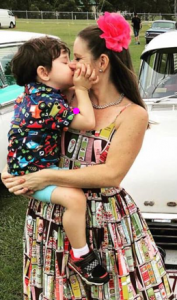 Michelle Worthington is an internationally published award-winning author of empowering picture books for children of all ages. “My goal is to inspire all children to believe in themselves and encourage reluctant readers to fall in love with books.” Michelle is also an international guest speaker on the importance of storytelling. Her books have been nominated for the CBCA Picture Book of the Year Award and Speech Pathology Awards. She was awarded a highly commended in the prestigious 2018 Hilarie Lindsay Children’s Book Awards. Two-time winner of the International Book Award and finalist in the USA Best Book Awards, Michelle also received a Gellett Burgess Award and a Silver Moonbeam Award for her contribution to celebrating diversity in children’s literature.
Michelle Worthington is an internationally published award-winning author of empowering picture books for children of all ages. “My goal is to inspire all children to believe in themselves and encourage reluctant readers to fall in love with books.” Michelle is also an international guest speaker on the importance of storytelling. Her books have been nominated for the CBCA Picture Book of the Year Award and Speech Pathology Awards. She was awarded a highly commended in the prestigious 2018 Hilarie Lindsay Children’s Book Awards. Two-time winner of the International Book Award and finalist in the USA Best Book Awards, Michelle also received a Gellett Burgess Award and a Silver Moonbeam Award for her contribution to celebrating diversity in children’s literature. She’s also a real-life book fairy. Her magic powers include turning coffee into award-winning books. As Founder of Share Your Story Australia, she waves her wand to coach aspiring authors and illustrators all over the world achieve their dreams of publication. Whether she’s a fairy, a mermaid, a pirate or an elf, Michelle celebrates empowering readers and storytellers to dream big.
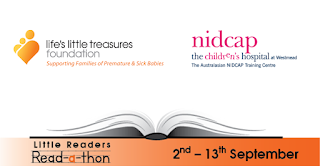
Register Now
https://lifeslittletreasures.org.au/little-readers-read-a-thon
www.michelleworthington.com
Published on July 08, 2019 22:54
April 4, 2019
Content Marketing for Authors and Illustrators Part 2
Published on April 04, 2019 16:15
Content Marketing for Authors and Illustrators Part 1
Published on April 04, 2019 15:53
August 6, 2018
It's Beginning to Look a Lot Like Christmas
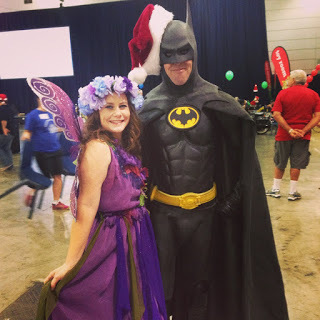 Share Your Story Christmas Writing Competition 2018
Share Your Story Christmas Writing Competition 2018Share Your Story
Writing Competition 2018 We are very proud to announce that you can be published in the Share Your Story Annual Anthology.
Please submit either a complete short story up to 1500 words (no first chapters or to be continueds…) or a poem of no more than 650 words. The theme is "Christmas" and our judges are looking for creative, engaging stories or poems that will appeal to children aged 5 to 12.
We would love you to celebrate the spirit of Christmas, share with us your Christmas story, your memories of Christmas as a child, or what Christmas means to you, or just make something up that kids will love.
You can enter as many times as you like and will receive feedback from the judges on your entry. All work must be original and school students are more than welcome to enter. The best entries will be included in an anthology entitled "It's Beginning To Look a Lot Like Christmas" to be launched in December, just in time to fill everyone's Christmas stockings and all published authors will receive the red (and green) carpet treatment. Entry Fee: $20 per entry
PayPal via the Enter Now button
Direct Deposit Details on Request
Guidelines: Entries open 9am 1st July 2018Entries close 9pm 31st August 2018Email your entry to Michelle Worthington at mworthington(dot)author(at)gmail(dot)comPlease include your name, address, contact phone number and title of your entry in the body of the email.If you are under 18, please include your age, Grade and School name in the body of the email.Attach your entry as a Word doc. Please include the title of your entry, your name and email address in the header of each page and page numbers in the footer.International entries are welcome, but must be in English.Don't include illustration notes.If you are offered publication in the anthology, you must agree to have your work professionally edited if required, at no charge to you.Authors retain full copyright on work.The judges decision will be final. No sooking. Santa knows if you have been naughty or nice...Pay by PayPalEnter Now
www.michelleworthington.com
Published on August 06, 2018 18:18
July 30, 2018
Kids can write and publish their own books, with some help!
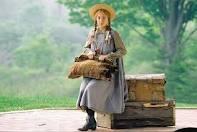 Is your child an Anne 'with an E'
Is your child an Anne 'with an E'Kids Can Create Books Workshops This workshop is for school aged children who have an idea for a story that they would like to publish.Whether it is a picture book or longer story, kids can bring their ideas to life, giving style and colour to a story solely created by them. Award winning international author of empowering picture books for children of all abilities, Michelle Worthington, will give aspiring authors and illustrators the information they need to decide what genre they would like to focus on, how they can create engaging stories and the process involved in publication.You can find out more about Michelle at www.michelleworthington.comJulieann Wallace, director of Lilly Pilly Publishing, will give real life examples of the children she has worked with to help them share their stories with the world. Visit www.lillypillypublishing.com for more information.To get the most out of this workshop, children are required to have a project in mind they would like to work on so they get relevant and constructive feedback and can have their specific questions answered.Bookings essential as places are limited. Parents are welcome to stay during the event, or take some time to read in the library while the workshop takes place, but we require all parents to stay on site.
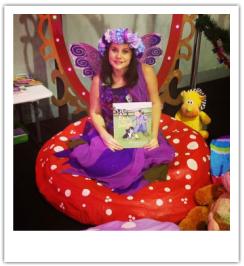
For any further information, contact Michelle at mworthington.author@gmail.com
Date and Time Sat. 11 August 201812:30 pm – 3:30 pm AEST
Location Wynnum Library145 Florence Street Wynnum, QLD 4178 Book now: Kids Can Create Books Workshop Booking Link
www.michelleworthington.com
Published on July 30, 2018 17:31
June 25, 2018
Tom and Mum's Book Review: Pug's Don't Wear Pyjamas
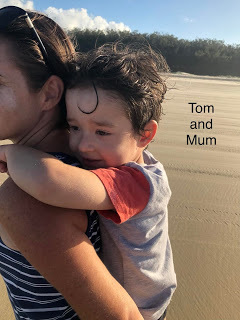 Tom and Mum's Book Reviews on iTunes
Tom and Mum's Book Reviews on iTunesMichelle Worthington is an award winning author, international guest speaker and publishing coach, but the star of this show is Tom. Tom loves chocolate, cuddles and construction. He's also the smartest, most honest and best reviewer in the world.
Pugs Don't Wear Pyjamas is written by Michelle Worthington, illustrated by Cecilia Johannson, published by New Frontier Publishing.When Tom visits his aunt he meets her pug Ellie.
Ellie is no ordinary pug. Wherever Tom's aunt goes, her pug must go too. His aunt dresses Ellie up for every outing.
Tom finds Ellie strange but she makes friends wherever she goes. Tom makes no friends.
He realises something has to change.
Click here to listen to the Podcast
www.michelleworthington.com
Published on June 25, 2018 04:31
January 23, 2018
Book Buying Behaviour of Millennials
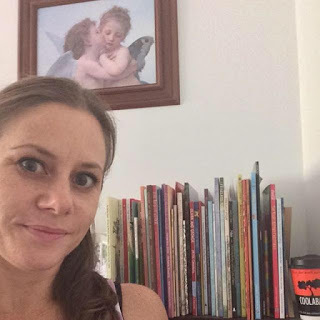
Understanding how and why the new generation of consumers buy books is a crucial to modern author's business and marketing plans.Every bestselling book starts with understanding the target market's buying behaviour. There are 4 major influential factors:
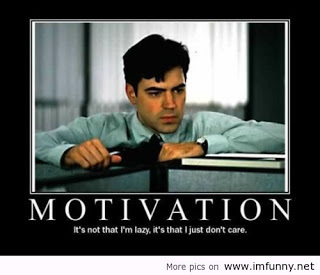 1. Motivation
1. Motivation
Millennials have different perceptions of the world yet their attitude towards reading and books is consistent which makes it easier for authors to create an effective marketing campaign. They are a generation marked by creativity, flexibility, open-mindedness, a strong sense of social responsibility and concern for the environment.2. Demographic
Millennials were born between 1980 and the end of 1999. For the first time, our most educated generation is growing up certain that it will be poorer than its parents. Many have graduated into a severe economic recession, were expose to extraordinary technological change, and have spent their formative years living under the cloud of terrorism.
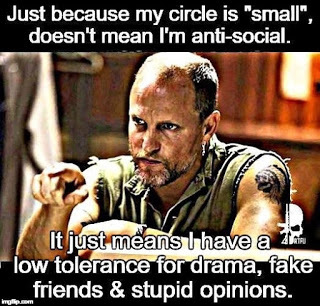 3. Social Circle
3. Social Circle
Peer groups have an immensely strong influence on buying behaviour. Friends are family. They ask for product recommendations by social media and posting public feedback. They have a social conscience and are driven by purpose and meaning.
4. Culture
Spanning 20 years, different social classes, cultures and continents, it is ridiculous to imagine that millennials have a unified identity. They are however unified in their use of social media and online culture for daily buying decisions.
The Millennial Buying Process.
1. See a need
Promotion of a book works best at this stage by making millennials aware that you and your book exists via social media or by book review or recommendation.2. Search for information
This is where authors need to have a distinguishable brand and an online presence to be searchable and easily found, remembering that millennials often buy products that support causes or charities.3. Evaluate Alternatives
Millennials make a choice based on all the information they can find compared to all the information they already know. Using or being an Influencer is effective at this stage in the marketing plan.
4. Decide to Buy
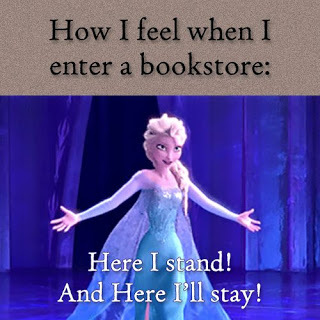 This is the only stage in the process where selling occurs. Millennials need to come to the buying decision on their own, or they feel someone is giving them the 'hard sell'. Real-time product availability would influence where they shop. They also like to have the option to buy online or instore, so book stores stocking your book is still an important aspect of successful selling. They have a preference for physical books over e-readers and this is likely to remain unchanged.
This is the only stage in the process where selling occurs. Millennials need to come to the buying decision on their own, or they feel someone is giving them the 'hard sell'. Real-time product availability would influence where they shop. They also like to have the option to buy online or instore, so book stores stocking your book is still an important aspect of successful selling. They have a preference for physical books over e-readers and this is likely to remain unchanged.5. FeedbackMillennials will share their shopping experience with their peers, whether it is good or bad. They are happy to leave reviews and are more likely to buy again from the same author if they have enjoyed a book or developed a connection over social media.
Most authors make the mistake when they think social media is for selling. It is for connecting, communicating and celebrating with a new generation of consumers who are smart and conscientious buyers.
www.michelleworthington.com
Published on January 23, 2018 20:13
September 26, 2017
Tips from Authors: What I Wish I'd Known Before I Decided to Publish a Book

https://www.mydeal.com.au/blog/post/authors-share-writing-tips
‘Authors Share One Thing No-One Tells You About Writing A Book’ www.michelleworthington.com
Published on September 26, 2017 00:52
September 13, 2017
Stop telling me what's wrong with our kids
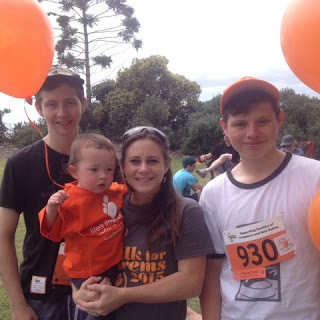
Nearly every day, I see an article online about what's wrong with our kids, from teenage boys to toddlers. Speaking from the view point of a mother who has both at the same time, I am so disappointed that this is the only way they seem to be perceived: as a problem that needs to be fixed.
My grandmother passed away recently. She was a woman who faced many challenges in her life and didn't always make the right decisions when it came to the best interests of her children, but she was passionate about always loving them for who they are. I learnt so much about the challenges of parenting from her and I will be forever grateful.
Our children are doing amazing. They are growing up in a world that is moving faster than any other time in history. No previous generation has had to adapt to the amount of technological, economical and climate change that they will have to do in their lifetime. As far as I am concerned, they are adapting incredibly well and in most cases, no thanks to us.
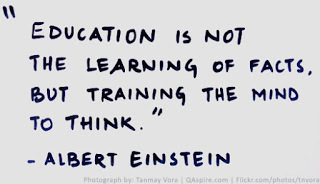
If we criticise our kids about being more sensitive, more distracted and harder to fit into a mould than previous generations, then we are being absolutely correct but incredibly unproductive. Why does that have to be bad thing? Children are constantly bombarded with real world concepts that we were sheltered from when news was only watched on television at night and only by grown ups. Children are expected to cope with the real world issues without in most cases having an age appropriate context to understand what is happening. We can't shelter our kids from the world. It's everywhere they look; TV, computer, phones and even at the petrol station when you are filling up the car, but we can treat them with the respect they deserve and have conversations with them and give them the tools that need to live in a world that doesn't sleep. I would much rather have a son who felt he could express his feelings to me, both good and bad, so that I could better understand his situation and hopefully give him the tools for further safe expression and continued communication, than make him feel that overwhelming emotions made him weak or inferior somehow and that expressing those feelings is wrong.
If I had a choice between reading a book or playing a game on my iPad when I was their age, I would have chosen iPad, and I love books. The lure of modern technology comes from smart marketing, inadequate arts funding for interactive creative projects and a bunch of dinosaurs who are still trying to compete with immediate, individualised, integrated programming and display an appalling lack of the imagination and foresight required to embrace what could be an amazing partnership between the new and the old. When parents are so distracted themselves, not only by having to be a two income family just to make ends meet, and then catching up with the younger generation by trying to understand the technology and social media they use with such ingenious prowess, that any time left should be to focus on the children. This is where we as parents fail them, by scheduling in after school and weekend activities from sporting, music and extra academic lessons to fill the white noise that deafens you as a parent of a child that you can't connect with. Connection with our kids is what's missing, and that's where we are failing them and not the other way around.

If we could just spend more time teaching our kids about critical and creative thinking, using the technology they are comfortable with, then they can hold the key to their own salvation. The insatiable need we have to give our kids labels is making them think that if they don't have one, there must be something wrong with them. It's not normal to be normal anymore. We've taken everything that was done with the best of intentions and twisted it with political purpose or economic gain. Even play based learning, extra help in the classroom and children's mental health issues have been skewed so far from the essence of their original purpose that they end up in most cases doing our kids more harm than good. Our education system, child protection agency and health care system are broken and the good people within these organisations that are trying to do the best for our kids are fighting a losing battle. All of these things are our of our kids control and another example of how they are constantly reacting to the world around them in order to survive. There is no time to think.
I understand that our kids aren't perfect, but what more can you expect from an imperfect world? As a parent, I'm not going to beat myself up about that, mainly because I don't have the time or energy to dedicate to what society thinks of me or my children, but mostly because the time I do have is better spent letting my kids know how proud I am of everything they are achieving and how much I'm looking forward to seeing the men they will become. I also let them know how sorry I am that the world they have to grow up in, the world that my generation was meant to fix, is a world full of 'ifs' and 'buts', without a clear answer of why things are the way they are or a united, safe and secure direction for the future. I believe with all my heart that the next generation, when we give them the support they need, not the criticism they definitely don't deserve, then and only then will they be the ones who really can make the world a better place.
www.michelleworthington.com
Published on September 13, 2017 20:29
September 5, 2017
The Importance of Group Story Time

The Importance of Group Story Time
It is a growing problem but a common fact that children are less interested in reading books as a single passive experience. If this is their sole experience of story time, we are in danger of them becoming disinterested in reading at all. The importance of regular storytelling in a group format has never been so important.
Children become engaged during story time because they construct mental images of the text events while it is being read aloud. When you provide them with a story that is vividly written, they become engaged with the text and actively respond to it. The use of picture books as stimulating text, not only for pre school aged children but for those in primary levels of education, provides a starting point in terms of creating a home or school culture that fosters engaged reading and aesthetic response. The interpretive tools that children use as they attempt to craft meaningful interpretations play a significant role in cognitive engagement and creative thinking.
One interpretative tool that has displayed for me the most cognitive engagement is when children relate the content of the text to their own personal experiences. When children are able to think about the text and make connections between the new information presented in the story and their store of background experiences, this allows them to be active and thoughtful about their interpretations.
Children often use this ability to make connections between familiar knowledge and incoming information in order to make predictions and inferences about characters, their motives and actions, as well as story events. If they can enter into shared reading knowing that their own unique set of interpretive tools has value, they find it easier to construct a meaningful connection and learn to work well in a collaborative environment.
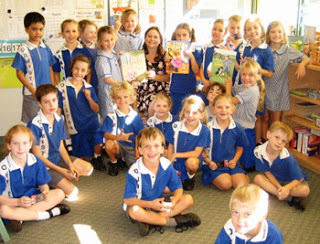
We need to encourage children more often to open their tool boxes and apply those tools in ways that build team work and critical thinking. The collaborative effort of group story time means children, along with the story teller, can add pieces of information recalled from the text, earlier predictions or background knowledge to support and elaborate ideas which is a natural and organic encouragement of further reading. Each new piece of information added to the discussion becomes a new tool that can be used to see how they all fit together as a whole, allowing them to raise their own questions and topics for discussion and learn the intrinsic value of linking the process of reading to finding answers to their own concerns.
If you have had a similar experience with group story telling, I would love to hear from you in the comments.
www.michelleworthington.com
Published on September 05, 2017 15:27



